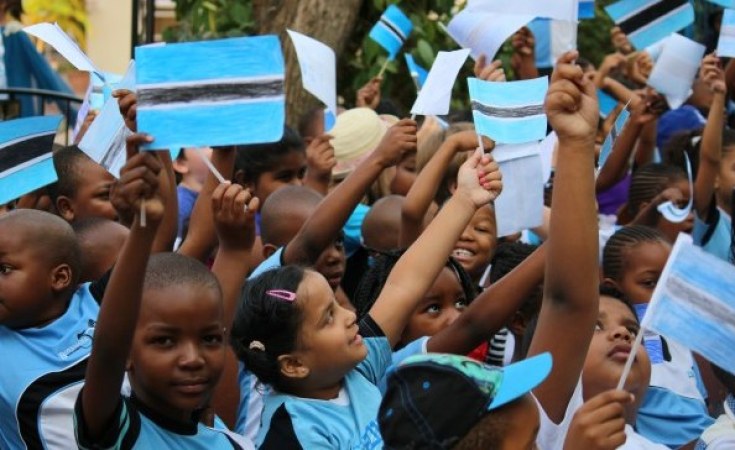According to a new analysis from the Oxford Poverty & Human Development Initiative at the University of Oxford, 30 of 35 sub-Saharan African countries analysed for changes to poverty levels over time reduced multidimensional poverty significantly.
Rwanda has put in a stellar performance, showing the most comprehensive and equitable poverty reduction on the continent, but so have 19 sub-national regions in Africa, notably the department of Likouala in the Republic of Congo.
The Global Multidimensional Poverty Index or MPI - unlike global monetary poverty measures - can break down poverty levels for regions within countries, as well as reveal the different dimensions in which people are poor, thus reflecting the "hidden face" of poverty.
It complements traditional income-based assessments of poverty by using indicators in three areas - health, education and living standards - to measure the deprivations that each person faces in those areas at the same time. And it is innovative in that it probes conditions within countries, using high quality data that can beam information from these levels.
Hence we know that every MPI indicator was significantly reduced in Burkina Faso, Comoros, Gabon, Mozambique, and Rwanda, showing the impact of coordinated policy responses to poverty. And sub-national regions in Gabon, Ghana, Gambia, Liberia, Mozambique, Malawi, Niger, and Rwanda reduced poverty significantly.
While Rwanda was truly a star performer, a number of sub-national regions in Africa reduced the MPI even faster. We call these creative high performers the "runaway regions" because they are small areas that did great things. The fastest MPI reduction was found in Likouala, Sanga, Cuvette-Oest and Pool in the Republic of Congo, as well as places like Nord-Kivu and Orientale in DRC and Hodh Charghy and Gorgol in Mauritania. Regions of Ghana, Kenya, Uganda, Mali, Tanzania and Lesotho were also runaway successes.
Ayodele Odusola, chief economist for the United Nations Development Programme in Africa, says: "The... (MPI) 2016 figures for Africa provide extensive detail as to variations in the composition of poverty within countries. They map multidimensional poverty for 475 subnational regions in Africa, providing an unprecedented level of clarity.
"Those working on Africa will wish to understand the comparative performance of different countries in multidimensional poverty, and study in particular the small regions that have creatively fought poverty with runaway success."
Pinpointing cases to celebrate can be welcome. For example Albina Chuwa, director general of the Tanzania National Bureau of Statistics, says: "We are glad that the Global MPI results recognize the extraordinary rate at which Zanzibar reduced multidimensional poverty."
Still, the stark scale of poverty remains vast. More than half (54 percent) of people in the 46 African countries surveyed suffer from multidimensional poverty. That means that over half a billion Africans (544 million) are poor by the standards of the MPI.
Unfortunately, the number of poor African people is not reducing as fast as the poverty rates. The number of poor people went down in only 12 African countries. In 18 countries, although the proportion of people who are multidimensionally poor fell, population growth led to an overall rise in the numbers of poor people. Even in Likouala, despite its amazing performance, the number of poor people increased.
The latest Global MPI figures cover 102 developing countries across the globe - some 5.3 billion people or 75 percent of the world's population. Nearly 1.6 billion people were found to be living in multidimensional poverty around the world.
The index considers overlapping disadvantages in terms of health, education and living standards, which makes it more receptive than traditional methods to capturing the real barriers that prevent poor people from thriving. People are identified as multidimensional poor if deprived in at least one-third of ten weighted indicators. The index combines the percentage of people living in multidimensional poverty with the intensity of deprivations, or how much deprivation they experienced.
The Global MPI 2016 uses data ranging from 2005-2015, mainly collected by USAID's Demographic and Health Survey and UNICEF's Multiple Indicators Cluster Survey, as well as national surveys and figures from the Pan Arab Project for Family Health. Drawing on the work of Nobel Laureate economist Amartya Sen, and estimated by researchers at the University of Oxford, the Global MPI was created together with and is published by UNDP's annual Human Development Reports.
Recently, the Global MPI is being explored from a new angle. The Sustainable Development Goals, which recently replaced the Millennium Development Goals, call on countries to halve the proportion of men, women and children living in poverty in all its dimensions. The MPI can be of great use in tracking multidimensional poverty reduction.
Not only can it be disaggregated by age and gender, but OPHI's study shows that the speed of reduction required by the SDGs is possible. For example, Gabon more than halved the proportion of MPI poor people 2000-2012, from 35.4 percent to 17.4 percent. And so did Comoros from 2000 to 2012, from 73.9 percent to 32.8 percent. The Global MPI tracks and celebrates such achievements, enabling others to learn from them.
Alongside the Global MPI many countries are also developing national MPIs, as official national statistics, whose indicators and cutoffs are tailored to their contexts and priorities. A national MPI can serve as a focal point for integrated and coordinated policies of targeting, evaluation, and programme design, and can monitor changes quickly. Both add value.
As Pali Lehohla, Statistician-General of Statistics South Africa put it, "The Global MPI 2016 provides some profiles of the creativity and innovation with which certain countries and subnational regions have reduced the worst forms of multidimensional poverty... We are now working to design a national MPI that reflects the needs of South Africa and the priorities of the poor."
Dr Alkire directs Oxford University's Poverty and Human Development Initiative in Britain and is also the Oliver T. Carr Jr. Professor in International Affairs at George Washington University in the United States. She is a co-creator of the Global MPI.


